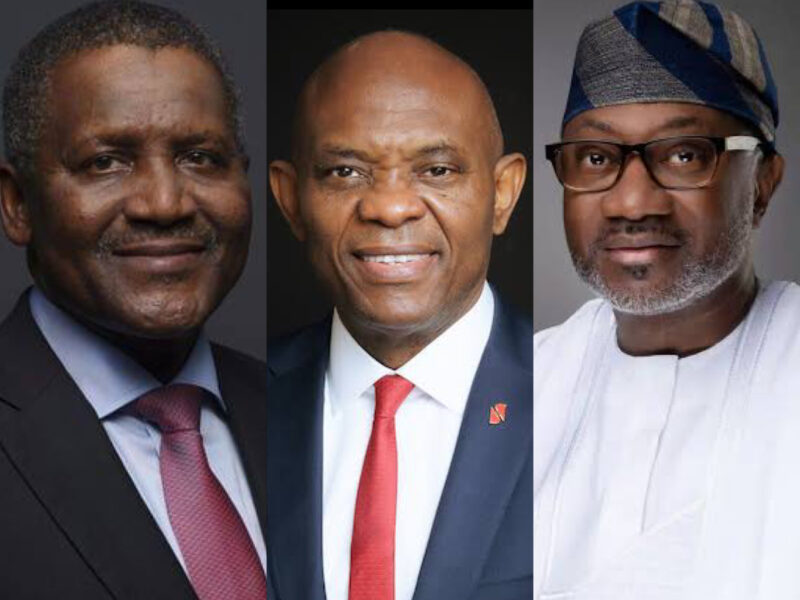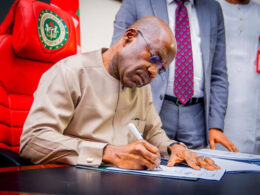As part of its ongoing efforts to eradicate malaria in Nigeria, the Federal Government has enlisted the support of some of the nation’s most prominent business leaders.
The government announced that Aliko Dangote, Chairman of Dangote Group; Tony Elumelu, Chairman of Heirs Holdings; and Femi Otedola, Chairman of Geregu Power Plc, will spearhead the campaign against the disease.
Dr. Tunji Alausa, Minister of State for Health and Social Welfare, inaugurated the Nigeria End Malaria Council on Friday in Abuja. During the event, Alausa emphasized that these industry leaders would work closely with the Nigerian Governors’ Forum (NGF), National Assembly joint Health Committees, and women’s organizations to combat and potentially eliminate malaria across the country.
The minister highlighted the urgency of addressing malaria’s prevalence, which has driven the establishment of the council. He pointed out that the widespread impact of the disease in Nigeria necessitates exploring all possible measures to tackle it.
“The Nigeria End Malaria Council was established on August 16, 2017, by former President Muhammadu Buhari,” Alausa said. “Its primary objectives are to keep malaria high on national and state agendas, secure strong political commitment from leaders, and mobilize resources, particularly from the private sector, to close resource gaps in the national malaria strategic plan.”
However, he noted that the council had not met since 2022 due to the change in government and other operational challenges, although the Secretariat remained functional.
Alausa also provided a sobering overview of the malaria crisis in Nigeria, stating that the country accounts for over a quarter of global malaria cases and about a third of the more than 600,000 malaria deaths worldwide, with children and pregnant women being the most affected. “Malaria contributes about 25% to 30% of childhood mortality and about 60% of hospital attendance. It is also a major cause of absenteeism in schools, markets, and workplaces, leading to significant out-of-pocket expenses for most households in the country,” he said.
The minister recalled Nigeria’s participation in the Ministerial Conference on Malaria in Yaoundé, Cameroon, where, along with 10 other high-burden countries, it signed a declaration to scale up malaria interventions. This was followed by the “Rethinking Malaria Elimination in Nigeria” roundtable, which brought together major stakeholders and global players to strategize on eliminating malaria.
Alausa acknowledged the challenges posed by Nigeria’s large population of over 200 million, all of whom are at risk of malaria, stressing that this presents a significant challenge for the government and requires a different approach to tackle the disease. While current interventions such as antimalarial medicines, treated nets, and insecticides are essential, he noted that they are neither sufficient nor sustainable, as much of the support comes from donors.
He referenced the African Leaders Malaria Alliance (ALMA) launched in 2009 and the Malaria Scorecard developed in 2011 to monitor the country’s performance, stating that no nation has ever eliminated malaria solely through donor support.
The minister officially handed over the leadership of the Council to Dangote, who has previously served as Nigeria’s Malaria Ambassador and is a member of the Global End Malaria Council. Alausa expressed confidence in the newly inaugurated Council’s ability to make a significant impact.
Outlining the Council’s key objectives, Alausa said, “The main goal of this body is to contribute to a reduction in the malaria burden and possibly eliminate malaria in Nigeria.” He added that eradicating malaria would improve the quality of life for all Nigerians. He emphasized the importance of the Council members’ positions, their passion for health issues, and their representation of various interest groups in ensuring the success of this initiative.
The Nigeria End Malaria Council Secretariat, led by its Executive Secretary, Mr. Ope Abegunde, was also handed over to the Council, signaling the government’s commitment to making malaria history in Nigeria.
At the Council’s inaugural meeting, Dangote urged members to confront malaria head-on. He acknowledged the collective strength of the Council members, which spans government, civil society, religion, and business, and highlighted their unique ability to mobilize resources for the national malaria program.
Dangote stressed the importance of keeping malaria elimination high on Nigeria’s agenda, which would require strong political commitment from leaders at all levels and advocacy at both national and state levels to secure sufficient funding. He urged the Council to protect the progress made so far, sustain it, and ensure that Nigeria is on an irreversible path to ending malaria for good.
“I want to thank you for your willingness to serve our beloved country in this capacity, and I am pleased to join hands with you to reduce the burden and deaths caused by malaria in Nigeria,” Dangote said.
The News Agency of Nigeria (NAN) reports that the Council members are expected to mobilize the necessary funds to ensure that malaria is eliminated in the country.









Join our Channel...